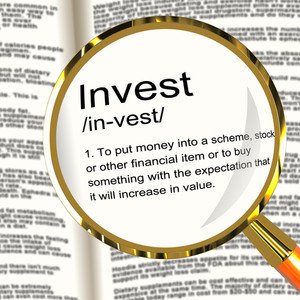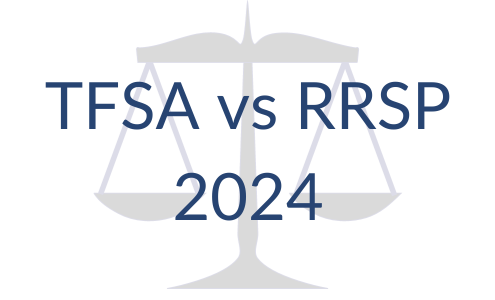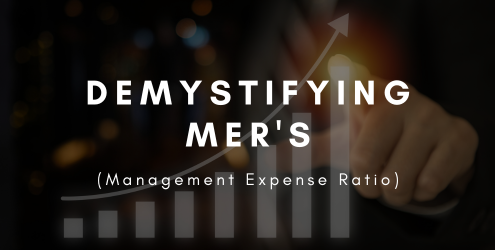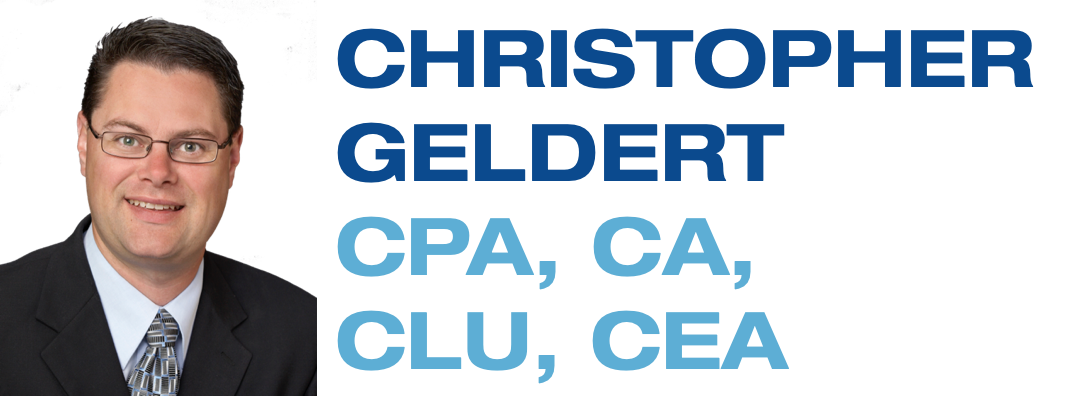
Optimizing Wealth Through Asset Re-Allocation
Blog, Investment, Life Insurance, taxIf you are an active investor, your investment holdings probably include many different asset classes. For many investors, diversification is a very important part of the wealth accumulation process to help manage risk and reduce volatility. Your investment portfolio might include stocks, bonds, equity funds, real estate and commodities. All these investment assets share a common characteristic – their yield is exposed to tax.

TFSA vs RRSP – 2024
2024, Blog, Business Owners, Estate Planning, Family, financial advice, Financial Planning, individuals, Investment, personal finances, Professionals, Retirement, RRSP, Tax Free Savings AccountWhen looking to save money in a tax-efficient manner, Tax-Free Savings Accounts (TFSA) and Registered Retirement Savings Plans (RRSP) can offer significant tax benefits. The main difference between the two is that TFSAs are ideal for short-term goals, such as saving for a down payment on a house or a vacation, as its growth is entirely tax-free, while RRSPs are more suitable for long-term goals such as retirement. When comparing deposit differences, TFSAs have a limit of $7,000 for the current year, while RRSPs have a limit of 18% of your pre-tax income from the previous year, with a maximum limit of $31,560. In terms of withdrawals, TFSAs have no conversion requirements and withdrawals are tax-free, while RRSPs must be converted to a Registered Retirement Income Fund (RRIF) at age 71 and withdrawals are taxed as income.

Are You On The Right Track?
Blog, Investment, Retirees, Retirement, RRSP, Tax Free Savings AccountIn bull markets, some investors develop unhealthy expectations as to the long term yields their investments should provide. Ten years ago, some came to accept returns as high as 15% to 20% per annum as the base return their fund and portfolio managers were expected to provide. Of course, these expectations came crashing back to earth in 2008 as the bull was chased away by a very large bear. Today, many fund managers are of the opinion that double digit returns are going to be very difficult to achieve with any consistency over the long term.
Is it time for us to lower our expectations?

Demystifying MER’s (Management Expense Ratio)
Blog, InvestmentInvesting in a fund involves knowing its associated costs, and the Management Expense Ratio (MER) is a crucial factor to consider. The MER is a percentage of the total assets in the investment fund that covers the fund's operating and management costs. It's important to note that the MER is subtracted from your investment returns, so a higher MER will result in lower net returns for you. For example, if a fund's expenses amounted to 2% of its assets, its MER would be 2%. It's crucial to understand the MER of a fund to make informed investment decisions and ensure that you're getting the most value for your money. In this article and infographic, we will break down the various components of the MER to help you better understand it.

First Home Savings Account (FHSA): What You Need to Know
Blog, InvestmentAre you looking to buy your first home in Canada? The First Home Savings Account (FHSA) could help make it happen. This savings plan allows first-time home buyers to save up to $40,000 tax-free, with contributions being tax-deductible. In this article and infographic, we cover everything you need to know about FHSA, including eligibility requirements, contributions and deductions, qualifying investments, withdrawals, and transfers.

Whole Life Insurance – A Whole New Asset Class
Blog, Investment, Life InsuranceThe recent developments in investment markets and the volatile performance that has resulted have brought about a new appeal to an old workhorse. For investors looking for a diversification in their investment portfolio and a more tax-efficient fixed income investment alternative, a compelling argument can be made for the use of Whole Life Insurance.

The Five Steps to Investment Planning
Blog, Financial Planning, InvestmentAn investment advisor can help you figure out what the right investment choices are for you.
The five steps to investment planning are:
• Meeting your investment advisor
• Determining your goals and expectations
• Developing your investment plan
• Implementing your investment plan
• Monitoring the plan
The sooner you start planning for retirement, the sooner you can get there! An investment advisor can help you get there quicker.

2022 Federal Budget Highlights
Blog, Insurance, InvestmentOn April 7, 2022, the Federal Government released their 2022 budget. Our article contains highlights of the various financial measures in this budget, divided into these sections:
• Housing
• Alternative minimum tax
• Dental care
• Small businesses
• Tradespeople
• Canada Growth Fund
• Climate
• Bank and insurer taxes

Having Your Cake and Eating it Too
Blog, Estate Planning, Financial Planning, InvestmentInvesting in an uncertain stock market is not for the faint of heart. However, fortunately for Canadians, Segregated Fund products offered by many life insurance companies provide a safety net for nervous investors.
Fund products present some interesting opportunities for people looking to get more security in their investment portfolios without sacrificing their potential for growth.

Business Owners: 2020 Tax Planning Tips for the End of the Year
2020 Only, Blog, Business Owners, Coronavirus, Coronavirus - Practice Owners, corporate, Estate Planning, financial advice, Financial Planning, incorporated professionals, Investment, Professional CorporationsIt's a great time to review your business finances now that we are nearing year-end. We have listed some of the critical areas to consider and provide you with some helpful guidelines to make sure that you cover all the essentials. We have divided our tax planning tips into four sections:
- Year-end tax checklist
- Remuneration
- Business tax
- Estate
